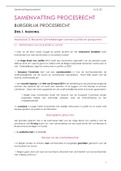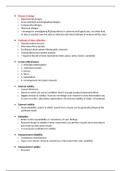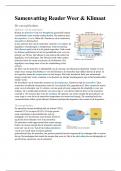🌍
Singer P - Famine, Affluence,
Moralit
duty vs. charity famine moral obligation
Column moral significance population control sacrifice
supererogation
Tags p. 79 - 94 Reader
November 1971, people are dying in East Bengal from lack of food, shelter
and medical care
India is forced to choose between letting the refugees starve or diverting
funds from her own development program, which will mean that more of
her own epople will starve in the future
Major emergencies in various parts of the world, arising both from natural
and from man made causes
The way people in relatively affluent countries react to a situation like that
in Bengal can't be justified
The whole way we look at moral issues — our conceptual scheme —
needs to be altered, and with it, the way of life that has come to be
Singer P - Famine, Affluence, Moralit 1
, taken for granted in our society
Assumption that suffering and death from lack of food, shelter, and
medical care is bad
If it is in our power to prevent something bad from happening, without
sacrificing anything of comparable moral importance, we ought, morally,
to do it
It requires to prevent what is bad, and not to promotw what is good
The uncontroversial appeareance of the principle just stated is deceptive
The principle makes no distinction between cases in which I am the only
person who could possible do anything and cases in which I am just one
among millions in the same position
We need to take porximity and distance into account
We cannot discriminate against someone merely because he is far away
from us
It is possible that we are in a better position to judge what needs to be
done to help a person near to us than one far away, and perhaps also
provide the assistance we judge to be necessary
From the moral point of view, the development of the world into a "global
village" has made an important, though still unrecognized, difference to
our moral situation
No possible justification for discriminating on geographical grounds
If everyone gives eveything they could, some of the sacrifice would be
unnecessary
Everyone does what he ought to do, the result will not be as good as it
would be if everyone did a little less than he ought to do, or if only some
do all that they ought to do
Not deny the principle that people in the same circumstances have the
same obligation
The result of everyone doing what he really ought to do cannot be worse
than the result of everyone doing less than he ought to do, although the
result of everyone doing what he reasonable belives he ought to do could
be
Singer P - Famine, Affluence, Moralit 2
, Neither our distance from a preventable evil nor the number of other
people who, in respect to that evil, are in the same situation as we are,
lessens our obligation to mitigate or prevent that evil
If it is in our power to prevent something very bad from happening,
without thereby sacrificing anything else morally significant, we ought,
morally, to do it
Distinction between duty and charity is not where it normally is
It all depends if we are looking for gratitude in return
superergatory ⇒ act which it would be good to do, but not wrong not to
do
One might decide that it is good to make other people as happy as
possiblr, but not wrong not do do so
Origin and continued existence of the present acts of duty and acts of
charity
Moral attitudes are shaped by the needs of society, and no doublt society
needs people who will observe the rules that make social existence
tolerable
Distinction between duty and superergatory → look beyong the interests
of our own society
We need to have a basic moral code which is not too far beyond the
capacities of the ordinary man
Considerations are only relevant to the issue of what we should require
from others. and not what we ourselves ought to do
We ought to be preventing as much suffering as we can without sacrificing
something else of comparable moral importance
Massive goverment assistance, people who do refuse to make voluntary
contributions are refusing to prevent a certain amount of suffering without
being able to point to any tangible beneficial consequence of their refusal
For many people, the idea that its "the government's responsibility"
osthrogoths a reason for not giving wich does not appear to entail any
political action either
Best means of preventing famine, in the long run, is population control
Singer P - Famine, Affluence, Moralit 3
Singer P - Famine, Affluence,
Moralit
duty vs. charity famine moral obligation
Column moral significance population control sacrifice
supererogation
Tags p. 79 - 94 Reader
November 1971, people are dying in East Bengal from lack of food, shelter
and medical care
India is forced to choose between letting the refugees starve or diverting
funds from her own development program, which will mean that more of
her own epople will starve in the future
Major emergencies in various parts of the world, arising both from natural
and from man made causes
The way people in relatively affluent countries react to a situation like that
in Bengal can't be justified
The whole way we look at moral issues — our conceptual scheme —
needs to be altered, and with it, the way of life that has come to be
Singer P - Famine, Affluence, Moralit 1
, taken for granted in our society
Assumption that suffering and death from lack of food, shelter, and
medical care is bad
If it is in our power to prevent something bad from happening, without
sacrificing anything of comparable moral importance, we ought, morally,
to do it
It requires to prevent what is bad, and not to promotw what is good
The uncontroversial appeareance of the principle just stated is deceptive
The principle makes no distinction between cases in which I am the only
person who could possible do anything and cases in which I am just one
among millions in the same position
We need to take porximity and distance into account
We cannot discriminate against someone merely because he is far away
from us
It is possible that we are in a better position to judge what needs to be
done to help a person near to us than one far away, and perhaps also
provide the assistance we judge to be necessary
From the moral point of view, the development of the world into a "global
village" has made an important, though still unrecognized, difference to
our moral situation
No possible justification for discriminating on geographical grounds
If everyone gives eveything they could, some of the sacrifice would be
unnecessary
Everyone does what he ought to do, the result will not be as good as it
would be if everyone did a little less than he ought to do, or if only some
do all that they ought to do
Not deny the principle that people in the same circumstances have the
same obligation
The result of everyone doing what he really ought to do cannot be worse
than the result of everyone doing less than he ought to do, although the
result of everyone doing what he reasonable belives he ought to do could
be
Singer P - Famine, Affluence, Moralit 2
, Neither our distance from a preventable evil nor the number of other
people who, in respect to that evil, are in the same situation as we are,
lessens our obligation to mitigate or prevent that evil
If it is in our power to prevent something very bad from happening,
without thereby sacrificing anything else morally significant, we ought,
morally, to do it
Distinction between duty and charity is not where it normally is
It all depends if we are looking for gratitude in return
superergatory ⇒ act which it would be good to do, but not wrong not to
do
One might decide that it is good to make other people as happy as
possiblr, but not wrong not do do so
Origin and continued existence of the present acts of duty and acts of
charity
Moral attitudes are shaped by the needs of society, and no doublt society
needs people who will observe the rules that make social existence
tolerable
Distinction between duty and superergatory → look beyong the interests
of our own society
We need to have a basic moral code which is not too far beyond the
capacities of the ordinary man
Considerations are only relevant to the issue of what we should require
from others. and not what we ourselves ought to do
We ought to be preventing as much suffering as we can without sacrificing
something else of comparable moral importance
Massive goverment assistance, people who do refuse to make voluntary
contributions are refusing to prevent a certain amount of suffering without
being able to point to any tangible beneficial consequence of their refusal
For many people, the idea that its "the government's responsibility"
osthrogoths a reason for not giving wich does not appear to entail any
political action either
Best means of preventing famine, in the long run, is population control
Singer P - Famine, Affluence, Moralit 3










